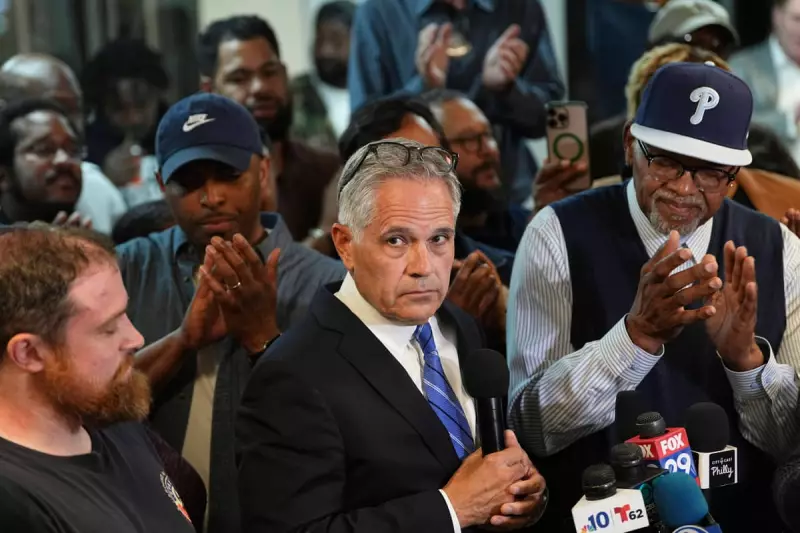
In a stunning political victory that defies national conservative trends, Philadelphia's progressive District Attorney Larry Krasner has secured an unprecedented third term in office. The controversial reformer comfortably defeated Republican challenger Michael T. Tafelski, cementing his position as one of America's most influential local prosecutors.
A Mandate for Progressive Reform
Krasner's resounding victory sends a powerful message about Philadelphia's continued appetite for criminal justice reform. Despite facing fierce opposition from police unions and conservative critics who blame his policies for rising crime rates, voters delivered a clear endorsement of his approach.
'This is not just a victory for our campaign, but for the movement that believes in a more just and equitable legal system,' Krasner told supporters during his victory speech.
Overcoming Political Headwinds
The election campaign unfolded against a backdrop of intense scrutiny. Krasner faced:
- Persistent criticism over Philadelphia's homicide rates
- Two attempts by state legislators to remove him from office
- Well-funded opposition from law enforcement groups
- National attention as a bellwether for progressive prosecution
Despite these challenges, Krasner's message of reducing mass incarceration and holding police accountable resonated strongly with the city's Democratic base.
What This Means for Philadelphia's Future
Krasner's third term promises to continue his transformative agenda, including:
- Further reductions in cash bail for non-violent offences
- Expanded diversion programmes for low-level offenders
- Increased accountability measures for police misconduct
- Continued opposition to the death penalty
The victory establishes Philadelphia as a durable stronghold for progressive criminal justice policies, even as other cities reconsider similar approaches.
National Implications
Political analysts are watching closely as Krasner's success contrasts with growing conservative sentiment elsewhere. His ability to withstand impeachment efforts and electoral challenges demonstrates the staying power of progressive prosecution in urban centres where voters prioritise reform over traditional law-and-order messaging.
As one political commentator noted, 'Krasner isn't just surviving - he's thriving. This victory will embolden progressive prosecutors nationwide.'
The Philadelphia result suggests that despite national political shifts, the movement for criminal justice reform maintains significant momentum in cities where it has established deep roots.





